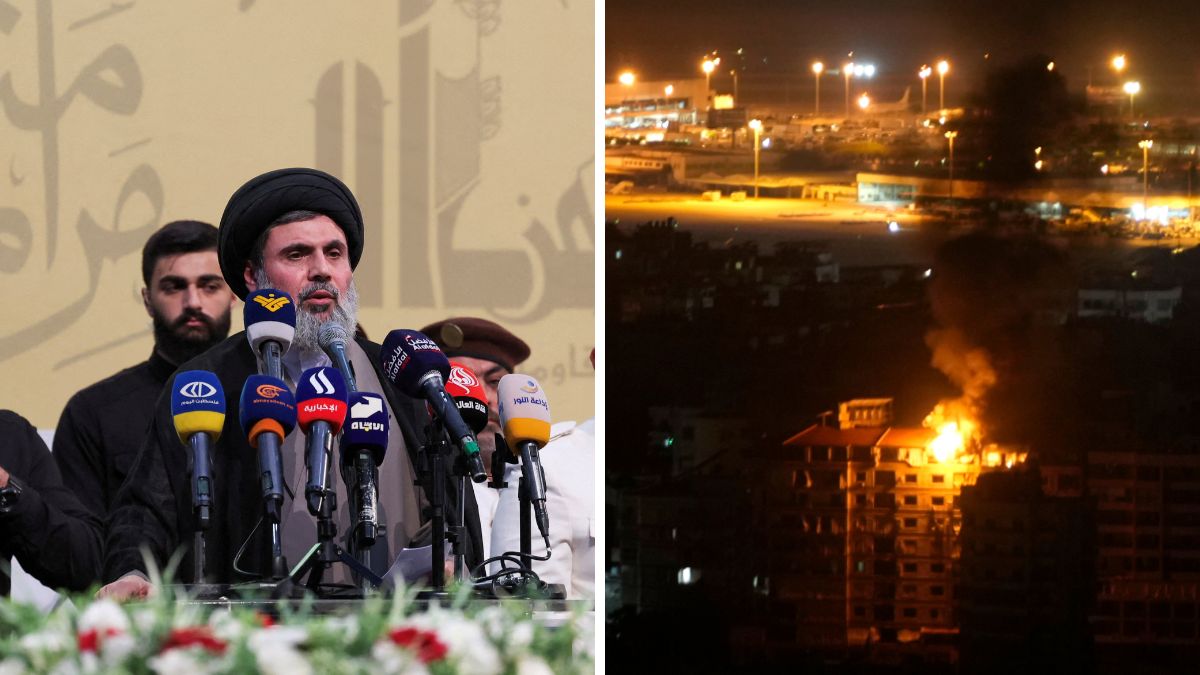Israel continued its targetted killing of Hezbollah leaders on Thursday, striking an underground bunker near the Lebanese capital Beirut, which is said to have killed the militant group's presumed new chief Hashem Safieddine.
Safieddine was meeting other Hezbollah leaders in an underground bunker bombed by Israel Defence Forces (IDF) and there is no word so far on his fate, according to The New York Times. Both Israel and Hezbollah have so far not responded to the reports.
Hashem Safieddine is the presumed successor of Hassan Nasrallah, the secretary general of Hezbollah's longtime chief who was assassinated in an airstrike in Lebanon last week. Safieddine is believed to have close links to Iran and its Supreme Leader Ayatollah Ali Hosseini Khamenei.
🇮🇱🇱🇧🚨
— Menachem Begin 🇮🇱 ✡️ (@lalish1415) October 3, 2024
IDF has eliminated Sayed Hashem Safieddine, a cousin of Hassan Nasrallah and the new leader of Hezbollah’s Executive Council.
He was reportedly the target of tonight’s Israeli Airstrikes on the Dahieh Suburb of Southern Beirut, eliminated using bunker buster bombs. pic.twitter.com/f6GbMDf6Nr
The report added that Hezbollah’s senior leadership was meeting inside the bunker around midnight on Thursday when IDF struck, according to three Israeli officials.
Hours before the strike, Israel had issued an evacuation order for the Burj al-Barajneh neighbourhood in southern Beirut late on Thursday night. Soon afterwards, around midnight, a series of huge explosions rocked the Dahiya. Such was the intensity of the attack that shock waves were felt at least 15 miles away. Lebanese media said this was one of the heaviest bombardments in the area since the war began last October.
More killings
Israel has said it also targeted Hezbollah commander Rashid Shafti on Thursday. Shafti is the group’s official in charge of the telecommunications and computer division in Beirut and was injured in the pager blasts that happened earlier this month.
The IDF said in a statement on Thursday that it had also killed Mahmoud Yusef Anisi, a Hezbollah official it said had been involved in the group’s precision-guided missile manufacturing chain in Lebanon.
It added that airstrikes were held across 200 Hezbollah targets in Lebanon, including weapons-storage facilities and observation posts. It had earlier asked people to leave Nabatieh, a provincial capital, and other communities north of the Litani river, which formed the northern edge of the border zone established by the UN Security Council after the two sides fought a war in 2006. Each side accuses the other of violating the resolution.


